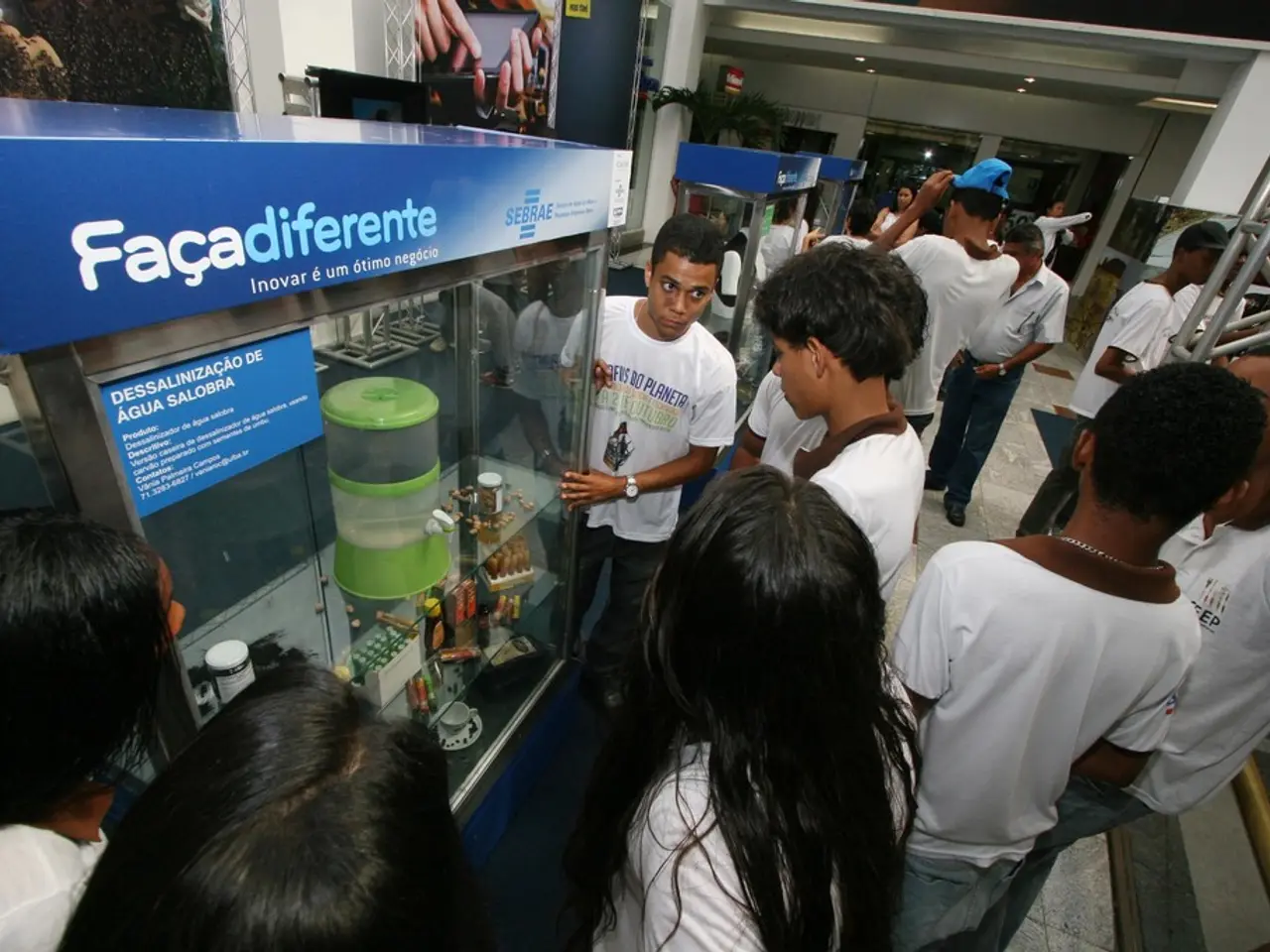Reflections: Have Morals and Ethics Abandoned Us Today?
In the current political landscape, a series of contentious issues have arisen, prompting much debate and introspection among Americans. Two of these topics, the treatment of Hispanic immigrants and the Medicaid debate, have been at the forefront of public discourse.
Firstly, the federal government's approach to Hispanic immigrants, particularly under policies linked to Project 2025 and similar conservative agendas, has sparked intense debate. The focus on stricter enforcement and deportation efforts, the elimination of protections and relief programs, and a shift away from family reunification and diversity, have raised concerns about due process, human rights, and the rule of law.
The stricter enforcement and deportation efforts propose ramped-up deportations nationwide, expanding expedited removal procedures that bypass judicial review. This has raised concerns over due process and wrongful removal, as sensitive zones protections, like schools and hospitals, are being targeted for raids. Programs such as TPS, DACA, and visas for crime victims, which shield many Hispanic immigrants from deportation, are also under threat.
Moreover, the administration aims to repeal the Diversity Visa lottery and restrict family-based immigration, favouring a merit-based system that looks for specific skills and economic contributions rather than familial ties or diversity. Supporters of these policies often prioritize strong immigration enforcement as a way to uphold rule of law, national security, and economic meritocracy.
However, this stance has deepened divisions within the Hispanic community. While some Hispanic Republicans support these policies for perceived economic benefits and stronger border control, others, including Hispanic lawmakers, have criticized the tactics, especially mass deportations affecting laborers, fearing social and humanitarian harm.
Local authorities and civil society groups continue to provide support and protection to immigrants, despite federal policies. Robust sanctuary policies have been implemented to maintain trust within immigrant communities, highlighting the tension between federal enforcement and community values around support and inclusion.
Meanwhile, the debate over Medicaid has also been a hot topic. Recently, there has been a discussion about cutting Medicaid to give tax breaks to the rich. This controversial move has been met with criticism, as it could potentially lead to increased health care costs and deaths for millions of Americans, particularly the most vulnerable.
Notably, the House Republicans have been accused of hypocrisy in this matter. They were seen cheering after voting to kick millions of Americans off Medicaid, despite earlier claims that they would not cut the programme. This action has raised questions about the alignment of their stated values with their actions.
Josh Moon, an investigative reporter and featured columnist, has been at the forefront of reporting on these issues. With years of political reporting experience in Alabama, he has been documenting the mistreatment of Hispanic people by the current federal government and the controversy over the improper and illegal detainment of American citizens by ICE.
Moon's work has shed light on the controversy over the lies told by Trump and Republican House members about not cutting Medicaid, only to later do so. He has also highlighted the inconsistency of some people who were vocal about freedom during the Obama administration not expressing similar concerns about the actions of ICE.
As the debate continues, many people are questioning their values and the actions of their elected representatives. For those seeking to stay informed, Josh Moon can be followed on Twitter or contacted via email at jmoon@our website. It is crucial that we continue to engage in open dialogue and hold our leaders accountable for their actions.
[1] Migration Policy Institute. (2020). Project 2025: The Trump Administration's Immigration Agenda. Retrieved from https://www.migrationpolicy.org/research/project-2025-trump-administration-immigration-agenda [2] American Immigration Council. (2019). The Trump Administration's Immigration Policies and Their Impact on Hispanic Communities. Retrieved from https://www.americanimmigrationcouncil.org/research/trump-administrations-immigration-policies-and-their-impact-hispanic-communities [3] Pew Research Center. (2019). Hispanic Republicans and Democrats: More Agreement Than You Might Think. Retrieved from https://www.pewresearch.org/hispanic/2019/07/24/hispanic-republicans-and-democrats-more-agreement-than-you-might-think/ [4] National Immigration Law Center. (2019). Sanctuary Cities and Counties. Retrieved from https://www.nilc.org/issues/sanctuary-cities-and-counties/
- The debate surrounding the federal government's approach to Hispanic immigrants, influenced by policies like Project 2025, has led to discussions within science and health-and-wellness circles, as concerns about due process, human rights, and the rule of law impact not only immigrants but also the overall quality of life.
- In the realm of general news and politics, the controversy over the potential repeal of the Diversity Visa lottery and family-based immigration has sparked intense debates about national identity and the value of diversity, with proponents of these policies advocating for rule of law, national security, and economic meritocracy, while opponents argue for maintaining familial ties and promoting diversity in society.
- Meanwhile, the Medicaid debate has extended beyond politics and lifestyle, transcending into the realm of health-and-wellness, as the impact of potential cuts on millions of Americans, particularly the most vulnerable, raises serious concerns about access to quality healthcare and the overall well-being of the nation.




